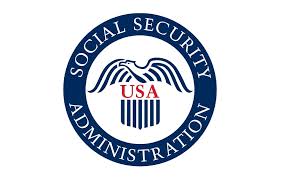
WASHINGTON— Social Security Administration policy updates that expand access to Supplemental Security Income (SSI) in accordance with the law are effective today.
The agency no longer includes food in In-Kind Support and Maintenance (ISM) calculations, has expanded its rental subsidy policy exception, and has expanded the definition of a public assistance household.

“These changes will help more people access crucial SSI benefits,” said Martin O’Malley, Commissioner of Social Security. “By simplifying and expanding our policies, we are making SSI smarter, removing barriers to accessing payments, and reducing the burden on the public and agency staff.”
Starting today, the agency no longer includes food in ISM calculations. The new policy removes a critical barrier to SSI eligibility that an applicant or recipient might encounter if they get informal food assistance from friends, family, and community networks. The agency estimates this change could increase monthly SSI payments by about $131 per month for over 90,000 people and allow more people to qualify for benefits. Refer to Press Release | Press Office | SSA).
Also, today, the agency is expanding a rental subsidy exception to all SSI applicants and recipients nationwide who previously applied in only seven states. This uniform nationwide policy will ensure that people paying at least a certain amount toward rent are not subject to ISM in the form of rental assistance. It is estimated this change could increase monthly SSI payments by about $132 per month for about 41,000 people and allow more people to qualify for SSI. (Refer to Press Release | Press Office | SSA)
The agency is expanding the definition of a public assistance household in two important ways. First, the agency will add Supplemental Nutrition Assistance Program (SNAP) benefits to the types of public assistance listed in the policy. Second, the agency will no longer require that all household members receive public assistance to be considered a public assistance household. The expanded definition allows more people to qualify for SSI, increases some SSI recipients’ monthly payment amounts, and reduces reporting burdens for individuals living in public assistance households. These two changes could decrease the amount of ISM charged to applicants and recipients, increase SSI payments to about 277,000 people, and make more people eligible for SSI in the coming years. (Refer to Press Release | Press Office | SSA).
SSI provides monthly payments to adults and children with a disability or blindness, and to adults aged 65 and older, who have limited income and resources. SSI benefits help pay for basic needs like rent, food, clothing, and medicine. People applying for and receiving SSI must meet eligibility requirements, including income and resource limits.
For more information on the SSI program, including who is eligible and how to apply, visit Supplemental Security Income (SSI) | SSA.



